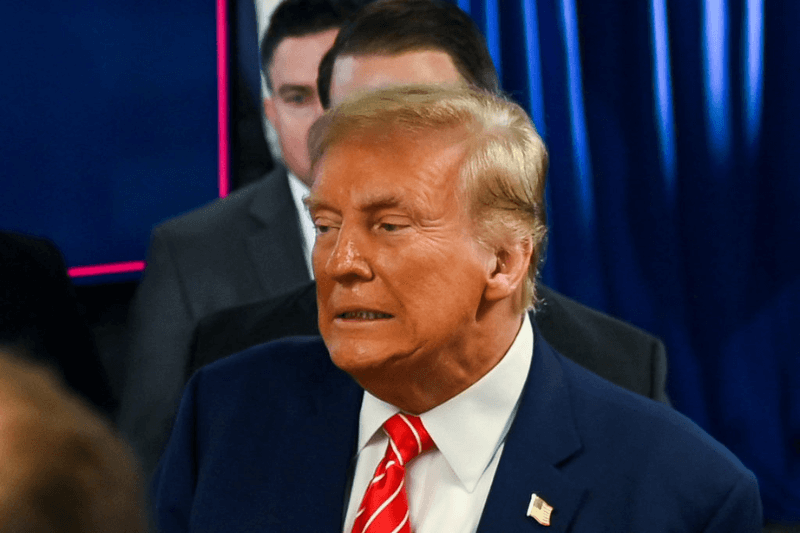
Decoding the Immunity Hearing: Trump’s Legal Battle in the Spotlight
The US court in Washington DC is currently engaged in a landmark hearing that questions whether former President Donald Trump can be held criminally responsible for his actions during and after the 2020 election. This high-stakes case, unfolding at the US Court of Appeals for the DC Circuit, has far-reaching implications, not just for Trump’s legal fate but for the very nature of presidential immunity and accountability. Let’s delve into the intricacies of this immunity hearing and its potential impact on Trump’s political future.
The Legal Landscape
Donald Trump, a Republican heavyweight, faces charges related to his alleged attempts to overturn Joe Biden’s victory in the 2020 election. His legal team contends that the office of the White House provides him with immunity from criminal prosecution. This assertion, while not explicitly mentioned in the US Constitution, draws from the historical understanding that government officials, including the president, are shielded from lawsuits during their tenure.
A Battle of Narratives
Trump’s lawyers are deploying a consistent defense strategy, not only in the Washington DC case but also in similar election charges in Georgia. The outcome of this hearing could significantly impact the trajectory of Trump’s legal battles, potentially delaying criminal trials beyond the 2024 election, where he is anticipated to be a prominent figure in the Republican nomination race.
Keep Reading
Constitutional Questions
The notion of presidential immunity, especially in the context of criminal prosecutions, raises constitutional questions. While Trump’s legal team argues for immunity based on his presidential duties, critics and legal experts contend that allowing such immunity might empower presidents to commit crimes to remain in office. The lack of legal precedent for the criminal prosecution of sitting or former presidents adds complexity to this already contentious issue.
Courtroom Dynamics
The three-judge panel overseeing the hearing has the arduous task of navigating through these legal complexities. Questions posed during the hearing, such as whether a president could order actions with impunity, highlight the gravity of the constitutional considerations at play. The judges’ skepticism about the immunity defense adds an additional layer of intrigue to the proceedings.
Political Ramifications
Beyond the courtroom drama, Trump’s legal battles are intertwined with his political narrative. The former president has consistently framed these legal challenges as attempts to strip him of his rights. His pledge to dismiss charges if he returns to the White House underscores the political stakes involved. The proximity of the courtroom to the site of the 2021 Capitol riot, instigated by Trump supporters, adds a symbolic dimension to the proceedings.
Public Opinion and Poll
Public sentiment regarding Trump’s immunity claims is a factor worth noting. A recent poll by CBS News indicates that a majority of Americans believe Trump should not be shielded from prosecution for actions taken during his presidency. This divergence in public opinion adds another layer of complexity to an already multifaceted legal battle.
The Road Ahead
The legal timeline is crucial, with the criminal trial scheduled for March 4, pending the ruling by the appeals court. Regardless of the local court’s decision, the case is poised to reach the US Supreme Court, where a conservative majority holds sway. The Supreme Court’s dismissal of an expedited ruling request and its decision to hear Trump’s appeal against the state of Colorado further emphasize the significance of this legal saga.
Conclusion
As the immunity hearing unfolds, it exposes the delicate balance between presidential powers, accountability, and the rule of law. The outcome of this legal battle has implications that extend beyond Trump’s personal fate, shaping the contours of presidential immunity for future generations. The legal complexities, political narratives, and public opinion converge in a courtroom in Washington DC, where the decisions made will resonate far beyond the confines of the legal arena.




